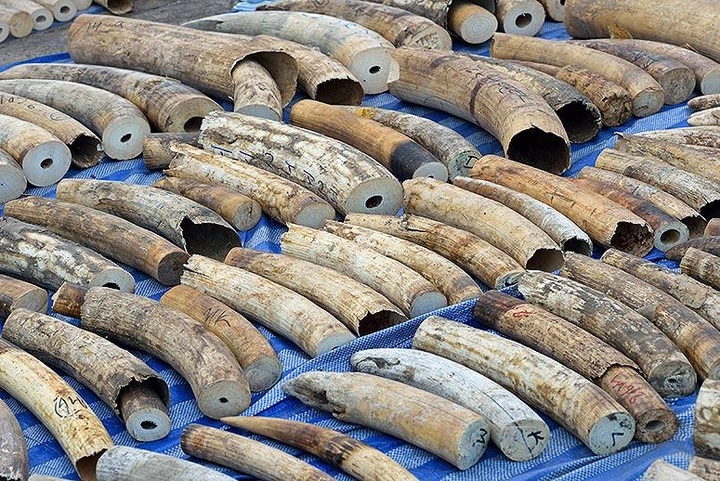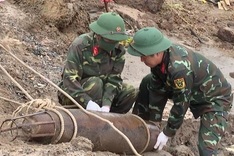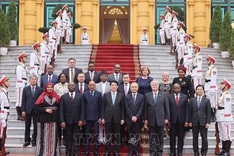Japan is doing little to enforce laws meant to keep illegal ivory out of circulation and is fueling the slaughter of elephants, a conservation group charged Thursday.

A report issued by the Environmental Investigation Agency, a United Kingdom-based non-profit, identified loopholes and weaknesses in Japan’s ability to regulate ivory sales, calling on the country to ban the trade.
EIA president Allan Thornton said an undercover investigation found a majority of the traders in Japan contacted were willing to dodge rules on ivory sales, and had little trouble doing so because enforcement was lax.
“All the evidence says there are virtually no controls, and the law does not provide the means for the police to monitor the domestic market,” Thornton said. “Japan has betrayed the international community, and betrayed the elephant range states of Africa, by failing to enact rigorous controls on the ivory trade.”
An official in Japan’s environment ministry disputed EIA’s claims of rampant smuggling, according to Agence France-Presse.
“If illicit activities are taking place, as the report suggested, then that's a great shock to us,” she told AFP. “The international trade of ivory is banned and that is strictly monitored by Japanese customs.”
Although Japan signed the convention banning the international trade of ivory in 1989, the country has allowed domestic sales of ivory stockpiled before that year.
Thornton said conservation groups have doubted Japan’s ability to control ivory sales, and keep illegal ivory from mixing with the legally registered tusks. Two subsequent “legal” ivory stockpile releases from South African countries in 1999 and 2008 have only fueled the illegal trade in countries such as China and Japan, he said.
“There’s been a tsunami of illegal ivory going to China, and all the attention has been on China,” Thornton said. But when EIA investigators started looking more closely at Japan, they found little enforcement there.
According to the report, dealers use paperwork from legally acquired tusks to sell illegal tusks that are of a similar size. In their investigation, EIA researchers found that 30 out of the 37 ivory dealers they approached were willing to buy unregistered ivory, help obtain fraudulent registrations, or skirt other regulations.
Japan’s “system is incapable of detecting or preventing illegal tusks from entering the market,” Thornton said. “It’s actually enabling illegal tusks to enter the market.”
The report also singled out online auction sites Yahoo Japan and Rakuten for their roles in facilitating the sale of ivory—much of which ends up in China. Yahoo spokesperson Suzanne Philion said that Yahoo Japan is an independently run business. Yahoo owns 35 percent of the company.
Between 2012 and 2014, EIA claims, 800 whole tusks, and eight tons of cut pieces of ivory were sold online.
“So combining them, 12 tons of ivory were sold from the beginning of 2012 to end of 2014,” Thornton said. “That’s a lot of elephants.”
The report comes as the world’s two largest markets for ivory, China and the United States, are cracking down on the ivory trade. The U.S. is in the midst of establishing a near complete ban on the commercial sale of ivory. In September, Chinese President Xi Jinping promised to take steps to control and eventually shut down the country’s domestic ivory trade.
In a new report from conservation group Save the Elephants, the price of raw, illegal ivory has fallen 50 percent in China in the past 18 month. The group says the price drop is due to heightened public awareness of the elephants’ plight, poaching crackdowns, a sluggish economy, and Jinping’s promised trade ban.
“If this trend continues and demand for ivory in China collapses, the Chinese government will be seen to have played a dramatic and decisive leading role in ending the worst crisis for elephants on record,” Iain Douglas-Hamilton, elephant conservationist and founder of Save the Elephants, said in a statement.
“The two biggest economies in the world have committed,” Thornton said. “Japan is the third biggest economy in the world, so we think it’s time for Japan to turn towards ending the damage it has caused, by ending its legal ivory trade.”




















